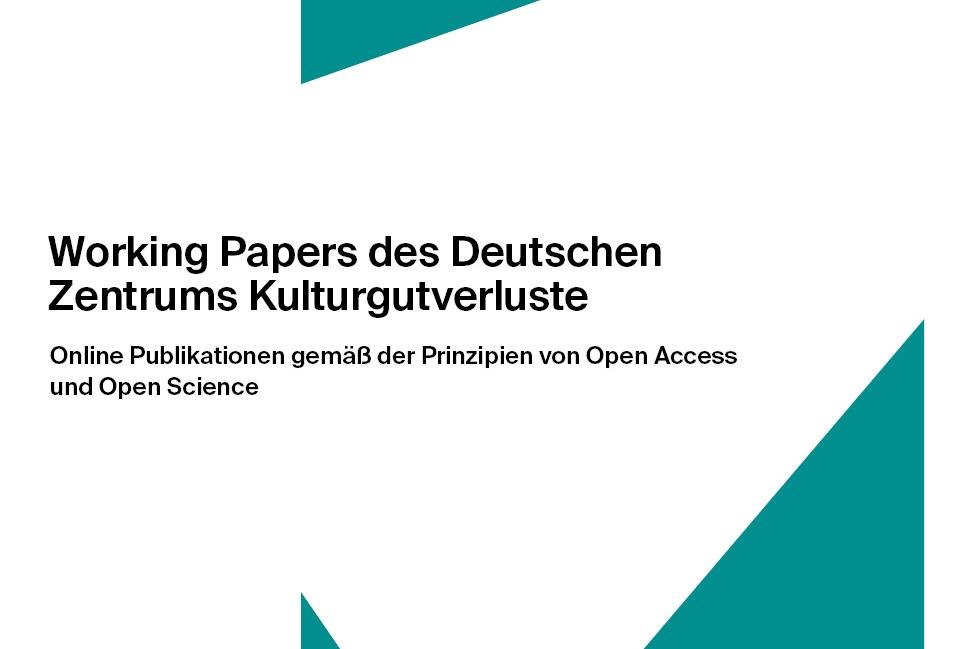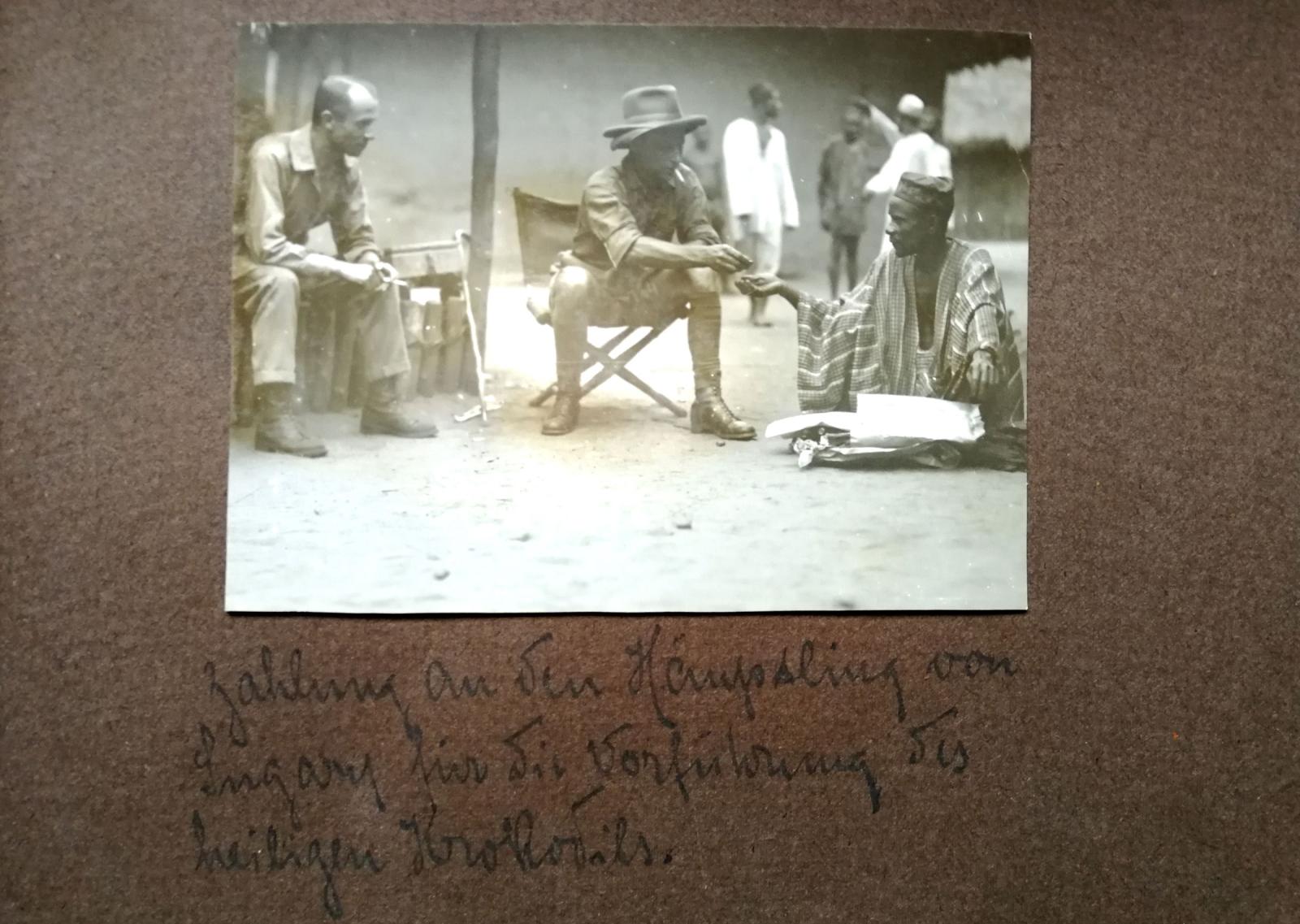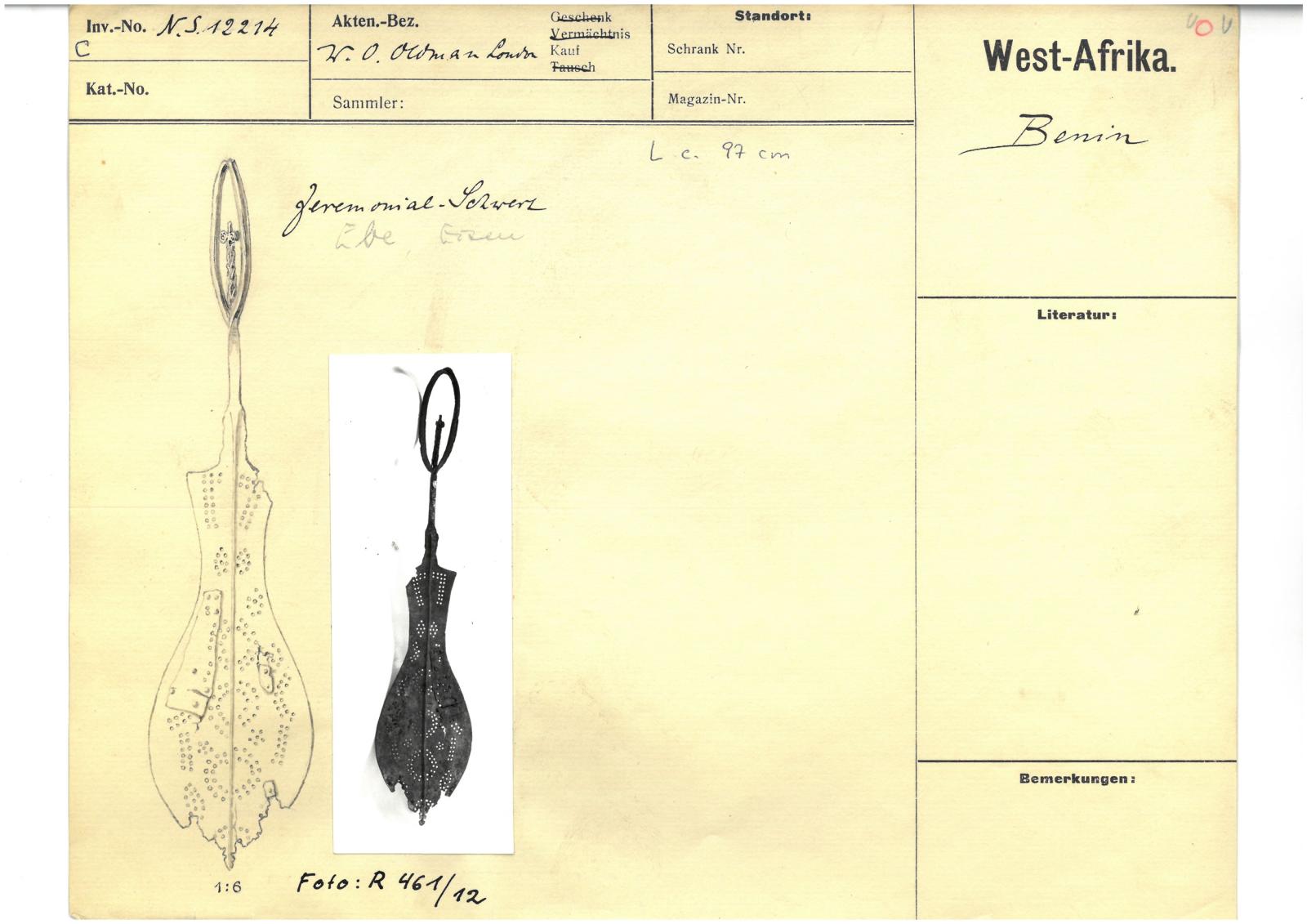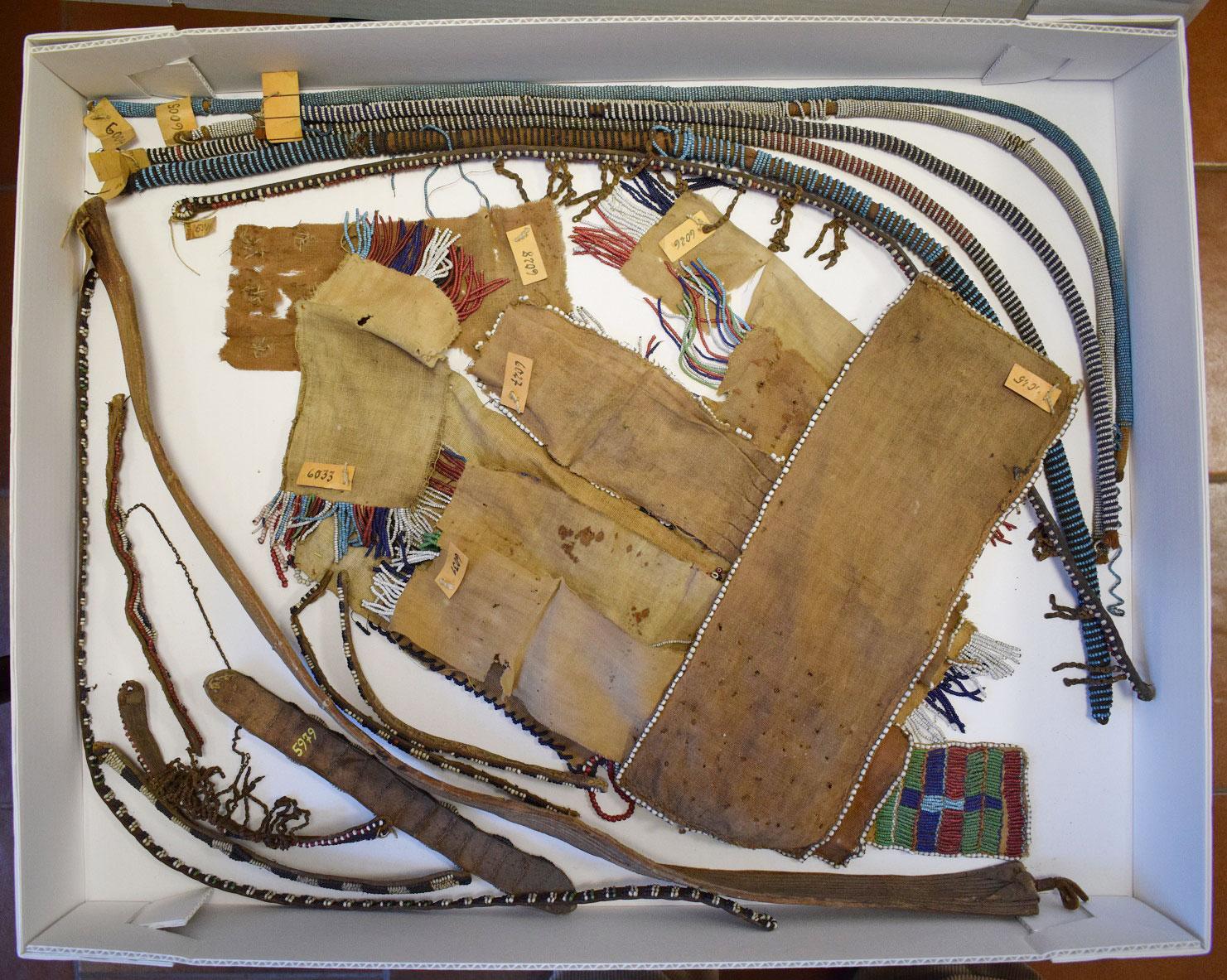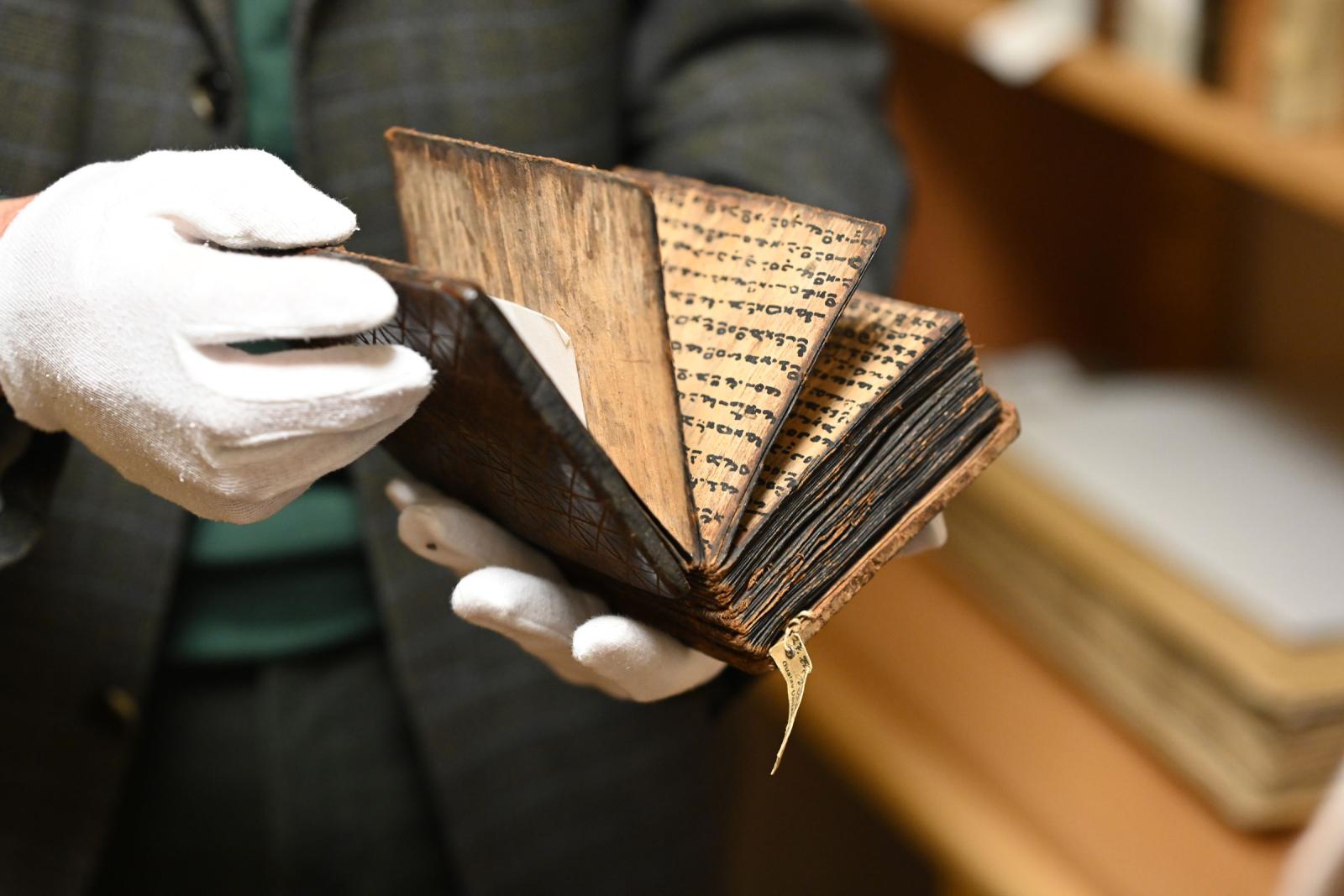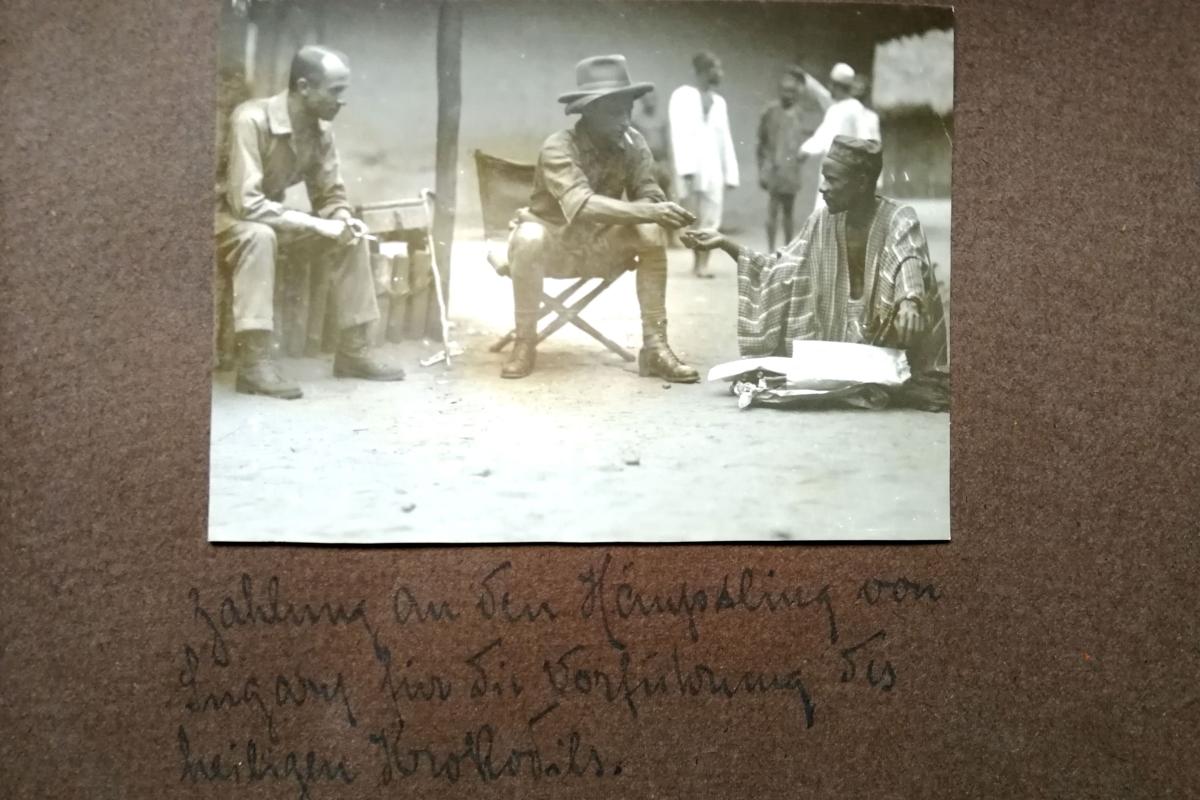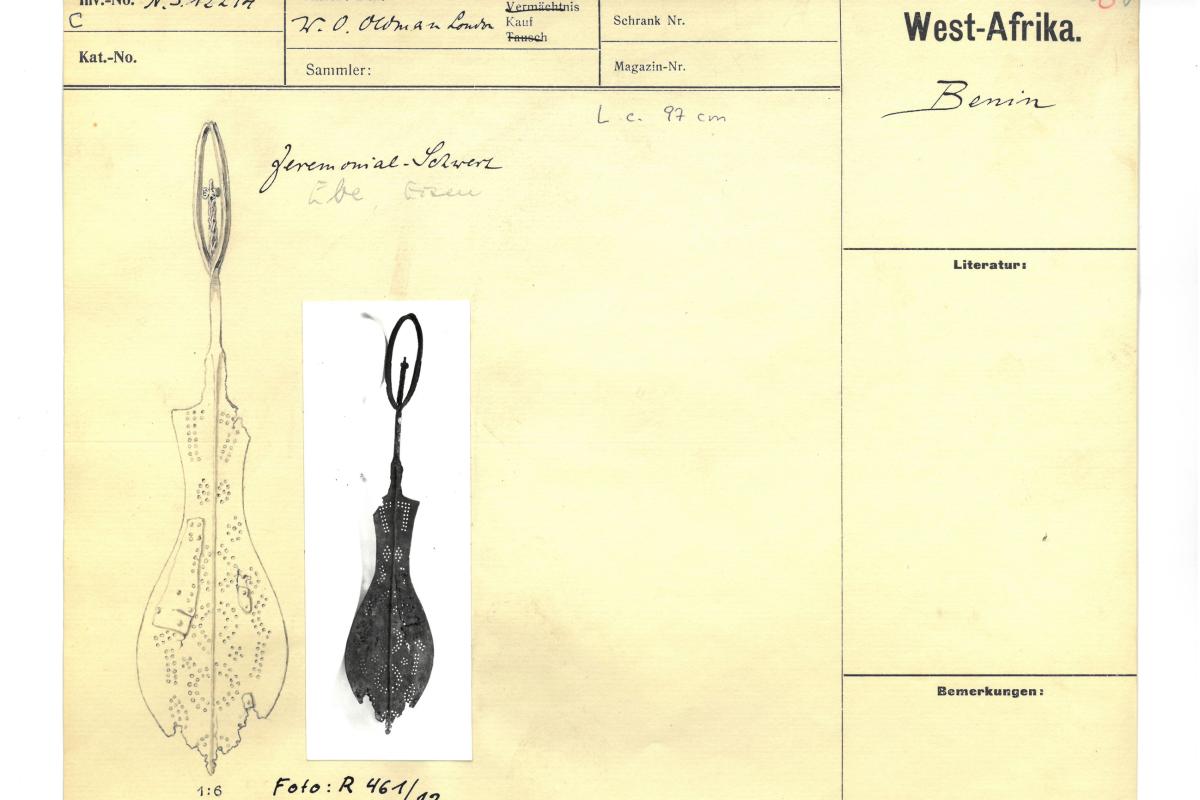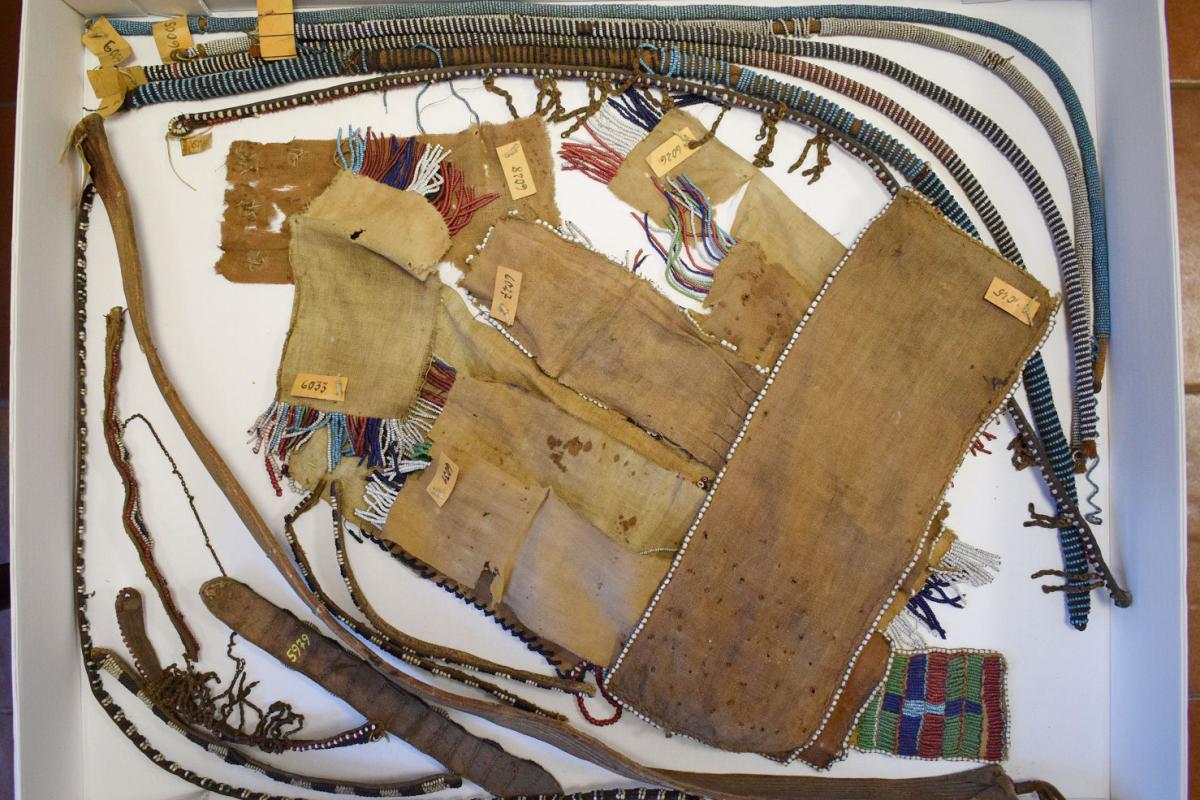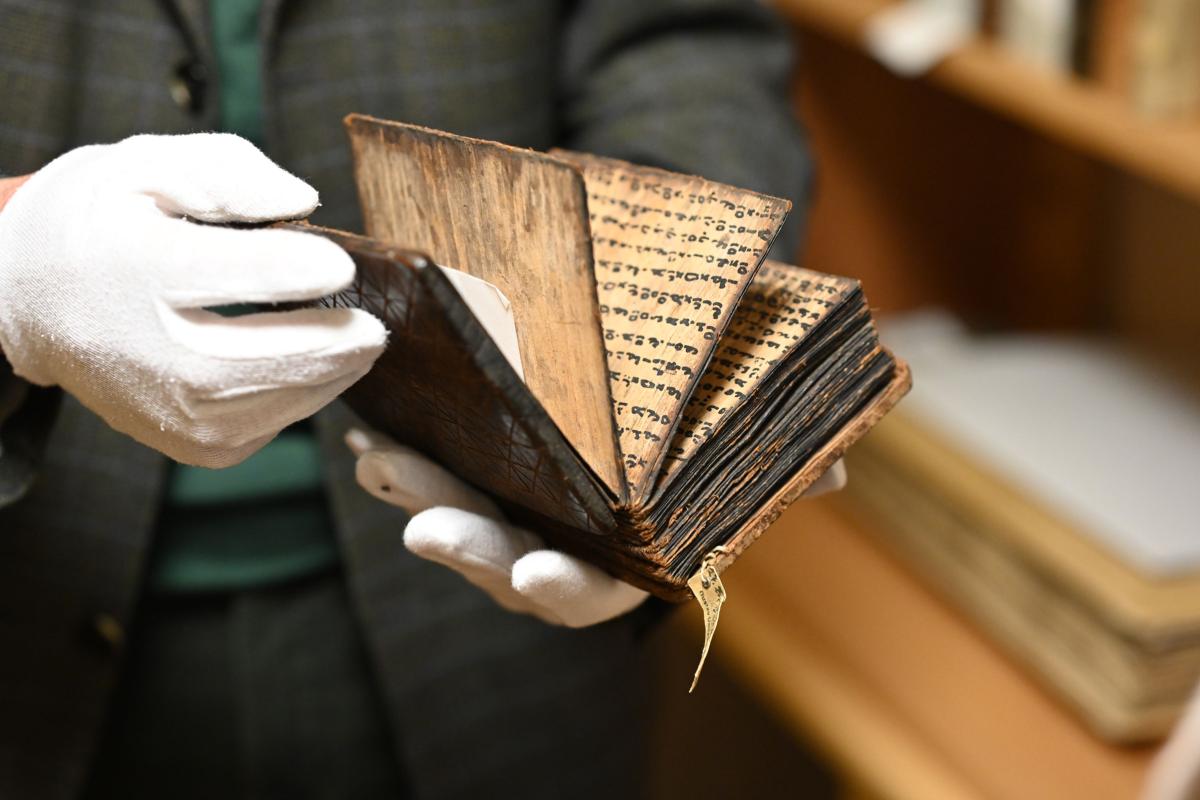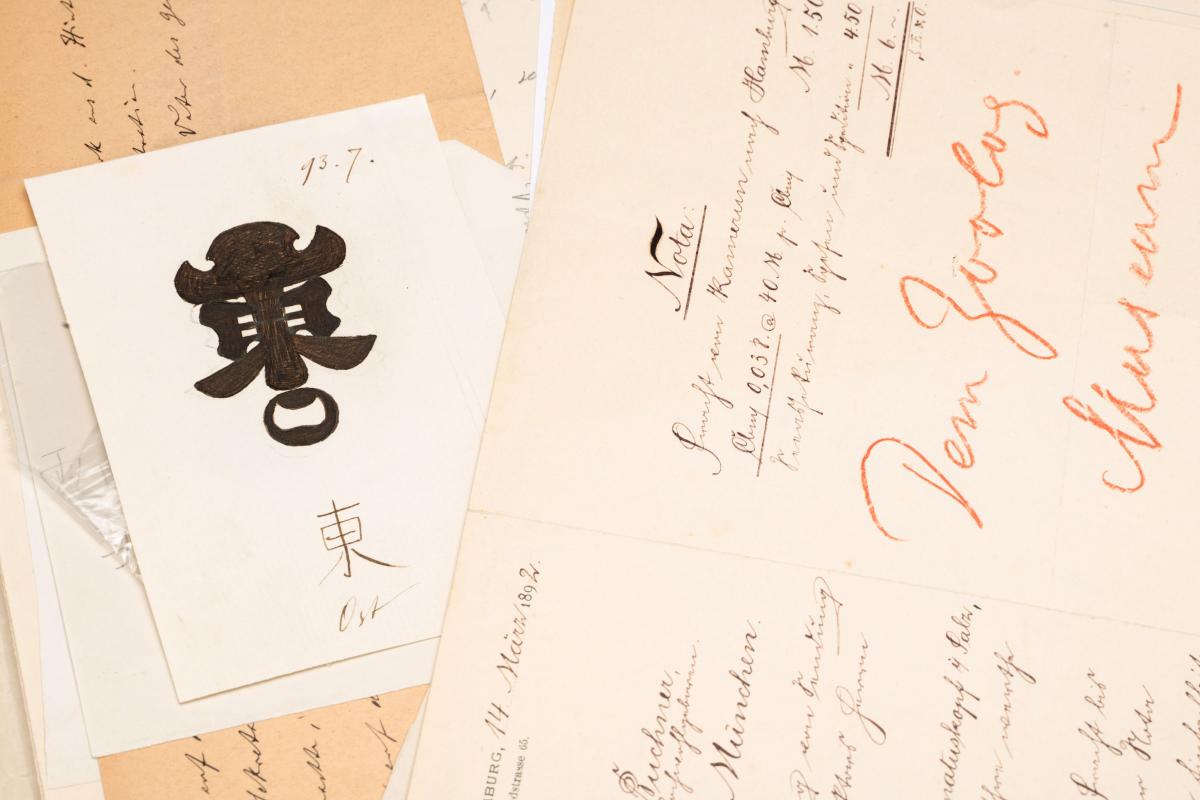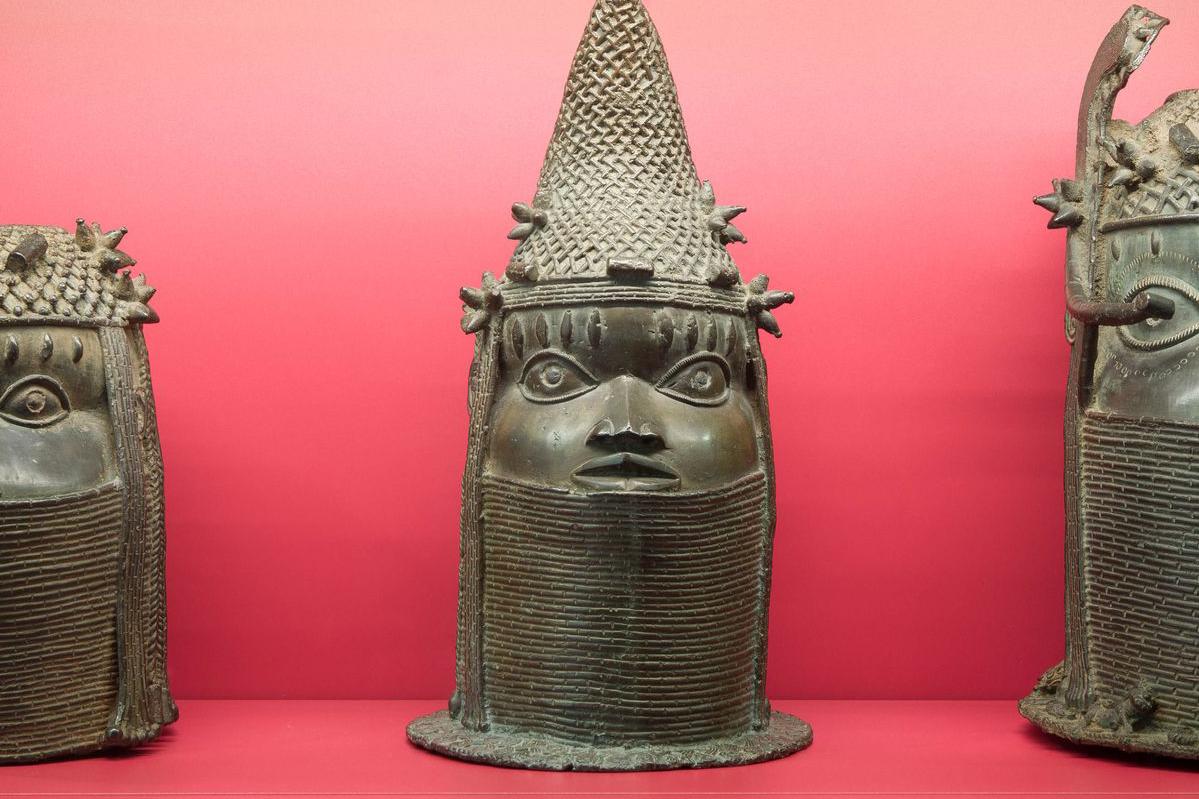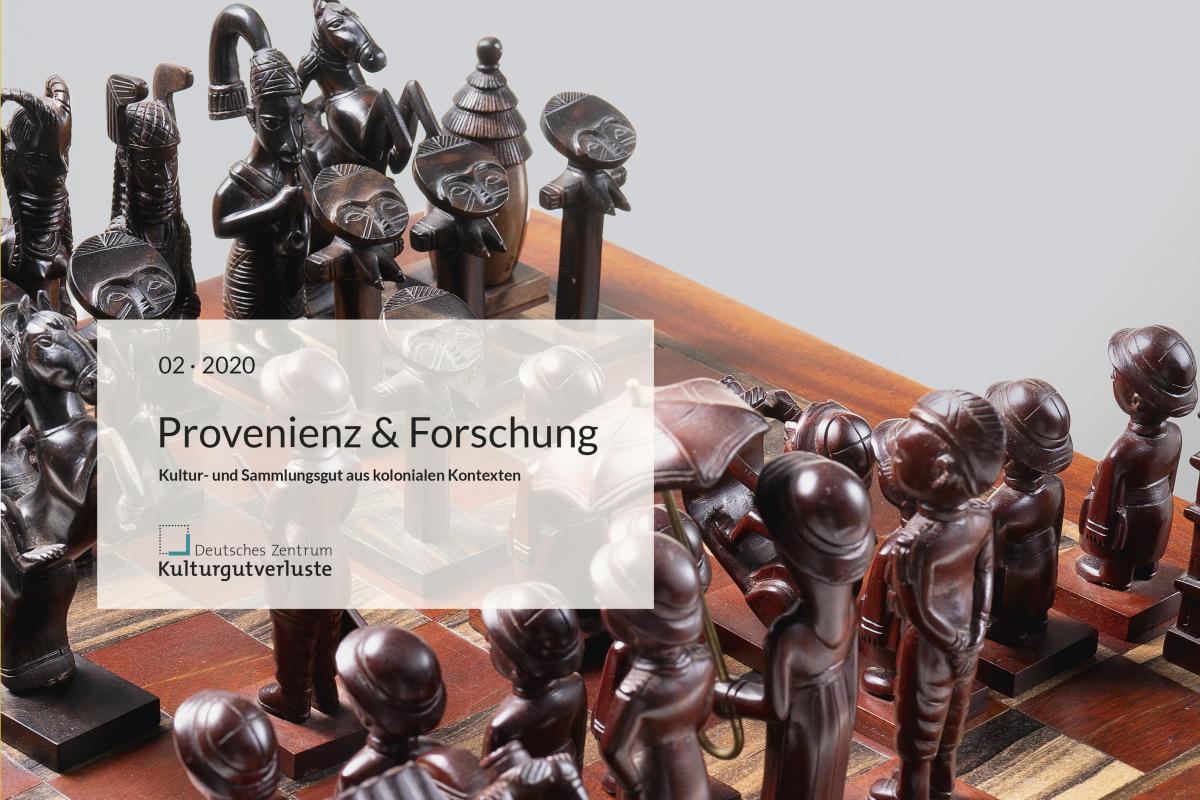Colonial Contexts: Basics & Overview
What is Meant by “Colonial Contexts”?
The term “colonial contexts” encompasses the circumstances and consequences of colonialism since European expansionism in the 15th century. It refers not only to formal colonial rule, such as that exercised by Germany, England, France, Belgium and the Netherlands in Asia, Oceania and Africa, but also to colonial structures and thought patterns that continue to have an impact to this day. After all, “colonial contexts” can persist long after a former colony has achieved state independence, for example as a result of exploitative relations or the marginalisation of minorities.
Colonial contexts are typified by an imbalance of power: “Colonial contexts are characterised by unequal power relationships and a self-image of the cultural superiority of those in power,” as is stated in the German Museums Association’s guide to handling cultural goods and collections in this field (“Guidelines for German Museums – Care of Collections from Colonial Contexts”). Colonialism can take on many forms and is described in general terms in the aforementioned guide as a “relationship marked by domination, in which the colonised are limited in their self-determination, are subject to heteronomy, and forced to adapt to the needs and interests of the colonisers, especially as far as politics and economic aspects are concerned.”
Colonisation often began with missionary work or the establishment of trading posts. It frequently involved brutal conquest and oppression. Most formal European colonial rule ended in the second half of the 20th century, but “colonial contexts” continue to have an impact in many forms to this day.
Germany’s Colonial Past
The German Reich, founded in 1871, became a colonial power relatively late compared to other European nations. Partly because Reich Chancellor Otto von Bismarck was initially critical of colonial endeavours, the first German colonies emerged from acquisitions made by private individuals and trading companies, which were subsequently placed under the “protection” of the Reich. From the mid-1880s, the German Reich established the colonies of Cameroon, Togo, German South West Africa (now Namibia) and German East Africa, as well as German Samoa and German New Guinea in the Pacific region and Kiautschou Bay Leased Territory in China.
The German Reich exercised its colonial power with enormous cruelty at times. In German South West Africa, the resisting Herero and Nama suffered genocide in 1904-1908. In the Maji Maji Rebellion in German East Africa in 1905-07, German troops waged a war against the population with the help of mercenaries that claimed hundreds of thousands of victims. The resistance on Ponape in the Pacific saw bloody suppression, as did that of the Boxer movement in China.
Defeat in the First World War meant that German colonial rule came to an end earlier than that of other European nations: the Treaty of Versailles deprived Germany of its colonies.
The German Lost Art Foundation has published two studies on colonial violence in Africa and Oceania in its series “Working Paper Deutsches Zentrum Kulturgutverluste”.
Key Events
Congress of Vienna
Establishment of German “protectorates” or colonies in Africa
Berlin Conference (also Congo Conference or West Africa Conference)
Occupation of the West African kingdom of Benin
Boxer Uprising (“Yihetuan” or “Yihéquán” movement) in China
Genocide of the Herero and Nama in German South West Africa
Maji Maji Rebellion in German East Africa
Resistance of the Sokehs in German New Guinea
Treaty of Versailles / End of formal German colonial rule overseas
Bandung Conference
Year of Africa
Postcolonial Provenance Research
Postcolonial provenance research looks into the origin of collections and objects acquired under colonial conditions. The aim is to find out which objects European actors appropriated by force in order to enable them to be returned to the countries or societies of origin. In the process, light is also shed on the ambiguous changes of ownership that occurred and the extent to which local actors were free in their actions. One aspect that is of key importance to postcolonial provenance research is cooperation with experts, interest groups and collection or research institutions in or from the countries and societies from where the objects or human remains originate.
The focus is on research into the provenance of individual objects, while also seeking to uncover colonial structures – such as the connection between colonial expansion and the establishment of “ethnological museums” in the 19th century. As such, postcolonial provenance research not only investigates the origin of objects, it also asks the question: what influence did colonial rule and racist ideology have on the emergence of collections and museums in Europe? And to what extent are institutions, culture and scholarship still shaped by this history to this day?
In addition to cultural property, one focus is on researching the origin of human remains, especially in anthropological, natural history and archaeological collections. Among other things, skulls and bones from colonised areas were collected in Europe for the purpose of so-called “race research”, a branch of research that attempted to prove the existence of “human races”; many of these are still kept in German collections to this day.
Background and Development of the Research Field
On a political level, two of the most important policy documents for the development of postcolonial provenance research are the commitment of the German federal government coalition for the period 2018-21 to the “Aufarbeitung der Provenienzen von Kulturgut aus kolonialem Erbe” (re-appraisal of the provenance of cultural property from colonial heritage) (2018) and the voluntary commitment of the federal, state and local governments in the position paper “Erste Eckpunkte zum Umgang mit Sammlungsgut aus kolonialen Kontexten” (Initial key points for handling collections from colonial contexts) (2019). Both were key factors in the establishment of the Department of Cultural Goods and Collections from Colonial Contexts.
The position paper identified six fields of action and goals in 2019. This included the establishment of the “German Contact Point for Collections from Colonial Contexts” and the implementation of the “3-pronged strategy”, from which the so-called CCC portal emerged.
Through these three bodies, dedicated funding is now provided for the first time for research into provenance in colonial contexts which is documented in the research database Proveana, as well as a central point of contact for persons and institutions from the countries of origin of the objects (especially with regard to possible returns), and also a central digital platform through which, in the medium term, it will be possible to view collection items from colonial contexts from all over the world.
Various factors contributed to these developments, in particular from the 2000s onwards. These include the debate about the Humboldt Forum in Berlin, negotiations between the German and Namibian governments regarding reparations for the consequences of the genocide committed against Herero and Nama, and the increasing number of enquiries and demands for the return of collection items from colonial contexts, especially human remains. With its Recommendations for the Care of Human Remains in Museums and Collections issued as long ago as 2013, the German Museums Association already responded to many of the issues raised in public debate. This was followed in 2018 by a second set of guidelines that dealt generally with collections from colonial contexts. In 2017, the Working Group Colonial Provenances was founded as an association of scholars who sought to influence political developments.
The debate gained fresh impetus with the publication of the report by Felwine Sarr and Bénédicte Savoy entitled “The Restitution of African Cultural Heritage. Toward a New Relational Ethic” in November 2018, in which the authors formulated recommendations for the restitution of African cultural heritage from public museums and collections in France. This followed French President Emmanuel Macron’s speech at the University of Ouagadougou (Burkina Faso) in which he announced the return of cultural property. The report also influenced other European states.
Key Actors and Structures
The Department of Cultural Goods and Collections from Colonial Contexts
In 2019, an additional unit was established within the German Lost Art Foundation to cover a new subject area, namely the Department of Cultural Goods and Collections from Colonial Contexts. Creating this department and offering funding for research projects in this field – available since 2019 – have been key steps in supporting provenance research into colonial contexts in Germany.
In addition to promoting research, the department attaches importance to networking between actors in Germany and those in the countries of origin of the objects studied. Workshops and conferences facilitate dialogue both nationwide within Germany and transnationally. The focus is on both basic and contextual research as well as questions of digitalisation, teaching and further education, and public debate of the topic – and very specific working aids are developed for the day-to-day practice of provenance research, too.
The department is based at the Foundation’s branch office in Berlin. It is led by Prof. Dr. Larissa Förster, with Dr. Jan Hüsgen and Sarah Fründt as research advisors. Anna Wickes-Neira is in charge of project coordination and the consulting work that this involves. Feel free to contact the department if you have any suggestions or questions or would like to obtain advice regarding a potential proposal submission! The members of the department are briefly introduced here.
Prof. Dr. Larissa Förster
Larissa Förster, social anthropologist, is head of the department. She advises on questions of provenance research on human remains, international cooperation and networking, and the handling of cultural goods and collections from colonial contexts. She also coordinates the department’s activities in the area of education and training. Her regional focus areas are southern Africa and Australia. In particular, she oversees projects relating to Namibia.
Head of the Department of Cultural Goods and Collections from Colonial Contexts
Seydelstraße 18
D-10117 Berlin
Germany
Tel.: +49 (0) 30 2338493 81
E-mail: larissa.foerster@kulturgutverluste.de
Dr. Jan Hüsgen
Jan Hüsgen, historian, is one the department’s research advisors. His advisory work is concerned with such areas as basic and contextual research as well as related questions concerning the digitalisation and indexing of central document holdings in the field of provenance research. One focus of his work is mission collections; in this connection he is involved in coordinating the sub-working group Mission Collections of the Working Group Colonial Provenances. His regional focus areas are western Africa and the Caribbean.
Basic and Contextual Research, Cultural History Collections, Mission Collections
Seydelstraße 18
D-10117 Berlin
Germany
Tel.: +49 (0) 30 2338493 82
E-mail: jan.huesgen@kulturgutverluste.de
Sarah Fründt, M.A.
Sarah Fründt, social and biological anthropologist, is one of the department’s research advisors. Her advisory work is mainly concerned with provenance research into human remains and sensitive collections as well as questions relating to digitalisation and digital infrastructure. In this connection, she plays a leading role in the human remains sub-working group of the Colonial Provenances Working Group and the Network Colonial Contexts. She is also involved with the subject of ethnological and natural history collections. Her regional focus areas are Oceania and Australia and also the Americas.
Ethnological and Natural History Collections, Human Remains
Seydelstraße 18
D-10117 Berlin
Germany
Tel.: +49 (0) 30 2338493 83
E-mail: sarah.fruendt@kulturgutverluste.de
Anna Wickes-Neira, M.A.
Anna Wickes-Neira, an expert in Latin American studies, is a project coordinator in the department and advises on questions of proposal submission, implementation and the handling of national and international projects. She is responsible for coordinating the department’s (information) events. Her regional focus is the Americas, in particular Mexico, Nicaragua, Peru and Chile.
Project Coordination and Consulting
Seydelstraße 18
D-10117 Berlin
Germany
Tel.: +49 (0) 30 2338493 84
E-mail: anna.wickes-neira@kulturgutverluste.de
What is the Contact Point?
The German Contact Point for Collections from Colonial Contexts, which is based at the Cultural Foundation of the German Federal States, aims in particular at individuals and institutions from the countries and societies of origin. It is intended to serve as the first, central point of contact for all questions concerning collections from colonial contexts in Germany. In particular, the German Contact Point will provide information and advice on collections from colonial context in Germany and related topics as well as connect individuals and institutions and establish networks. In addition, the Contact Point supports the Federal Government-Länder Working Group on Dealing with Collections from Colonial Contexts in Germany in the elaboration and further development of the areas of activities and overall objectives defined in the "Framework Principles for dealing with collections from colonial contexts".
Find out more: https://www.cp3c.org
What is the Working Group Colonial Provenances?
Forming part of the umbrella organisation Provenance Research Association, the Working Group Colonial Provenances is the central body representing postcolonial provenance researchers in Germany. Its purpose is to promote networking and the exchange of information. For example, the Working Group observes and discusses the development of long-term strategies for the handling of collections, explores options for prioritising individual collection holdings and making research results accessible, and also puts forward proposals for (transnational) cooperation and the institutionalisation of provenance research at museums and universities. It has various subgroups that are dedicated to specific issues such as digitalisation, human remains and mission.
For further details, including information about membership, see https://www.arbeitskreis-provenienzforschung.org/arbeitsgruppen/ag-koloniale-provenienzen/. Here you will also find a link to a central overview of ongoing and completed projects in the field of postcolonial provenance research.
What is the Network Colonial Contexts?
The Network Colonial Contexts is a loose association of individuals and institutions that are involved with questions of digital aggregation, handling and visibility as well as the possibilities of using digital materials and data. It is open to actors based in both Germany and abroad. Participants currently include provenance researchers, scholars working in the fields of ethnology, history, political science and art studies, and experts on the subject of digitalisation in science and culture. They represent some 50 different institutions such as libraries, archives, museums and collections, research funding and research infrastructure institutions, including the Working Group Colonial Provenances of the Provenance Research Association, the German Lost Art Foundation, the Specialised Information Services African Studies, Social and Cultural Anthropology and the Coordination Centre for Scientific University Collections in Germany. The network has various subgroups and organises networking and information meetings on a regular basis.
For further details, see: https://www.evifa.de/en/netzwerk-koloniale-kontexte/network-colonial-contexts?set_language=en
What is the CCC portal in the German Digital Library?
The portal Collections from Colonial Contexts establishes transparency regarding digitalised and indexed collections from colonial contexts in German cultural and knowledge institutions. For this purpose, data from 25 pilot institutions were initially integrated in the main portal of the German Digital Library and made searchable via a separate user interface. A central online portal for collection material from colonial contexts is currently being set up in the German Digital Library. A combination of CARE and FAIR principles will enable the participation of representatives from societies of origin and allow the retrieval and analysis of data according to international standards.
For further details, see: https://ccc.deutsche-digitale-bibliothek.de/?lang=en
Literature
- Deutscher Museumsbund (ed.): Guidelines for the Care of Collections from Colonial Contexts, Berlin 2021. Available online at: https://www.museumsbund.de/publikationen/guidelines-on-dealing-with-collections-from-colonial-contexts-2/
- Deutscher Museumsbund (ed.): Care of Human Remains in Museums and Collections. Guideline, Berlin 2021. Available online at: https://www.museumsbund.de/wp-content/uploads/2021/07/dmb-leitfaden-umgang-menschl-ueberr-en-web-20210625.pdf
- Cressida Fforde/C. Timothy McKeown/Honor Keeler (eds.): The Routledge Companion to Indigenous Repatriation. Return, Reconcile, Renew, London/New York 2020
- Hans Fischer: Die Hamburger Südsee-Expedition. Über Ethnographie und Kolonialismus, Hamburg 2007
- Larissa Förster/Iris Edenheiser/Sarah Fründt/Heike Hartmann (eds.): Provenienzforschung zu ethnografischen Sammlungen der Kolonialzeit. Positionen in der aktuellen Debatte, Berlin 2018. Available online at: https://edoc.hu-berlin.de/handle/18452/19768
- Larissa Förster: Der Umgang mit der Kolonialzeit: Provenienz und Rückgabe, in: Larissa Förster/Iris Edenheiser (eds.): Museumsethnologie: Eine Einführung. Theorien – Debatten – Praktiken. Berlin 2019, pp. 78-103.
- Sarah Fründt: Sensitive Collections, in: Larissa Förster/Iris Edenheiser (eds.): Museumsethnologie: Eine Einführung. Theorien – Debatten – Praktiken. Berlin 2019, pp. 134-147.
- Jürgen Gottschlich/Dilek Zaptcioğlu-Gottschlich: Die Schatzjäger des Kaisers. Deutsche Archäologen auf Beutezug im Orient, Berlin 2021
- Rebekka Habermas (ed.): Von Käfern, Märkten und Menschen: Kolonialismus und Wissen in der Moderne, Göttingen 2013
- Jan Hüsgen: Colonial Expeditions and Collecting – The Context of the “Togo-Hinterland” Expedition of 1894/1895, in: Journal for Art Market Studies 1 (2020). Available online at: https://www.fokum-jams.org/index.php/jams/article/view/100/184
- Jürgen Osterhammel/Jan C. Jansen: Kolonialismus. Geschichte, Formen, Folgen. 8th, updated edition, Munich 2002
- Barbara Plankensteiner (ed.): Benin. Geraubte Geschichte, Hamburg 2022
- Wolfgang Reinhard: Die Unterwerfung der Welt. Globalgeschichte der europäischen Expansion, München 2018
- Bénédicte Savoy/Robert Skwirblies/Isabelle Dolezalek (eds.): Beute. Eine Anthologie zu Kunstraub und Kulturerbe, Berlin 2021, and the related publication Bénédicte Savoy/Merten Lagatz/Philippa Sissis (eds.): Beute. Ein Bildatlas zu Kunstraub und Kulturerbe, Berlin 2021
- Holger Stoecker/Thomas Schnalke/Andreas Winkelmann (eds.): Sammeln, Erforschen, Zurückgeben? Menschliche Gebeine aus der Kolonialzeit in akademischen und musealen Sammlungen, Berlin 2013
- Andreas Winkelmann/Holger Stoecker/Sarah Fründt/Larissa Förster: Interdisziplinäre Provenienzforschung zu menschlichen Überresten aus kolonialen Kontexten. Eine methodische Arbeitshilfe des Deutschen Zentrums Kulturgutverluste, des Berliner Medizinhistorischen Museums der Charité und von ICOM Deutschland. Heidelberg 2022. Available online at: https://doi.org/10.11588/arthistoricum.893
- Joachim Zeller/Marianne Bechhaus-Gerst (eds.): Deutschland postkolonial? Die Gegenwart der imperialen Vergangenheit, Berlin 2021
- Joachim Zeller/Jürgen Zimmerer (eds.): Völkermord in Deutsch-Südwestafrika. Der Kolonialkrieg (1904-1908) in Namibia und seine Folgen, Berlin 2003
Research Options
Find further research options in our research database Proveana.



